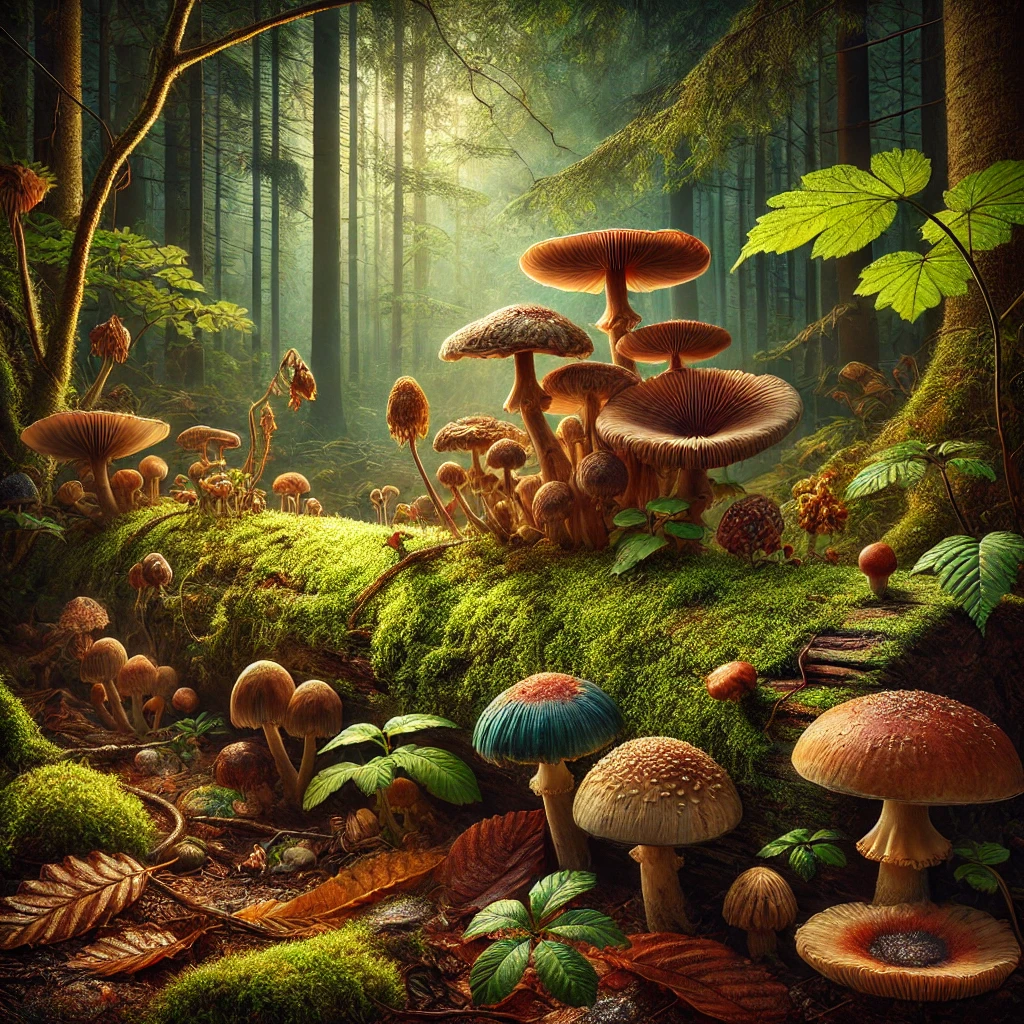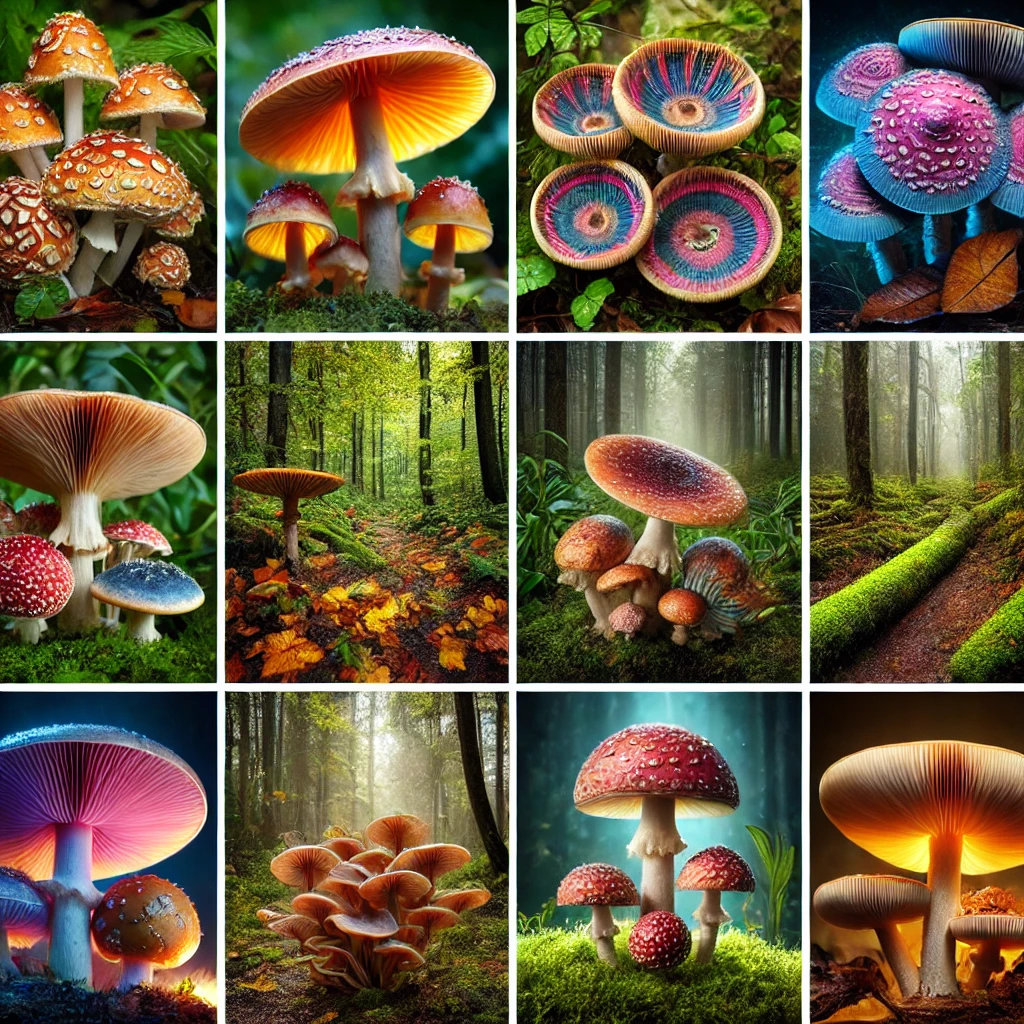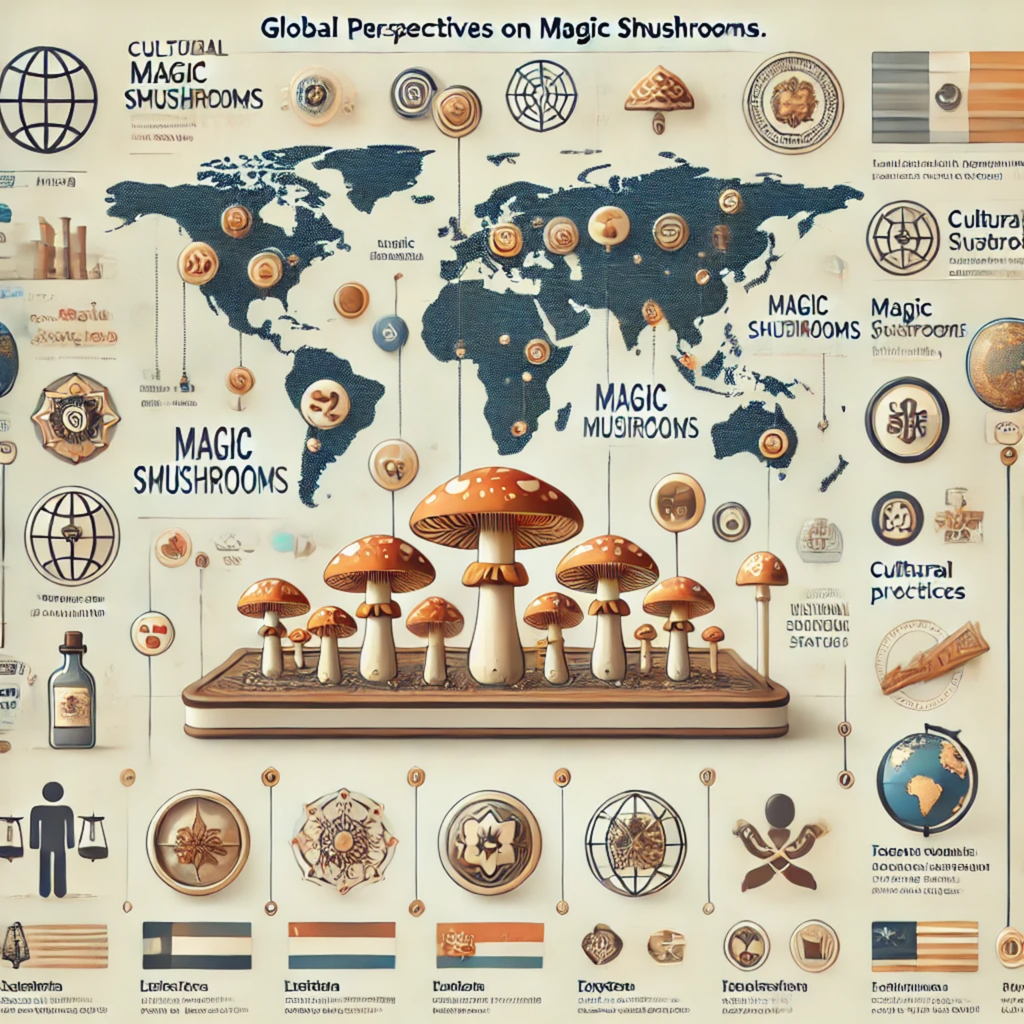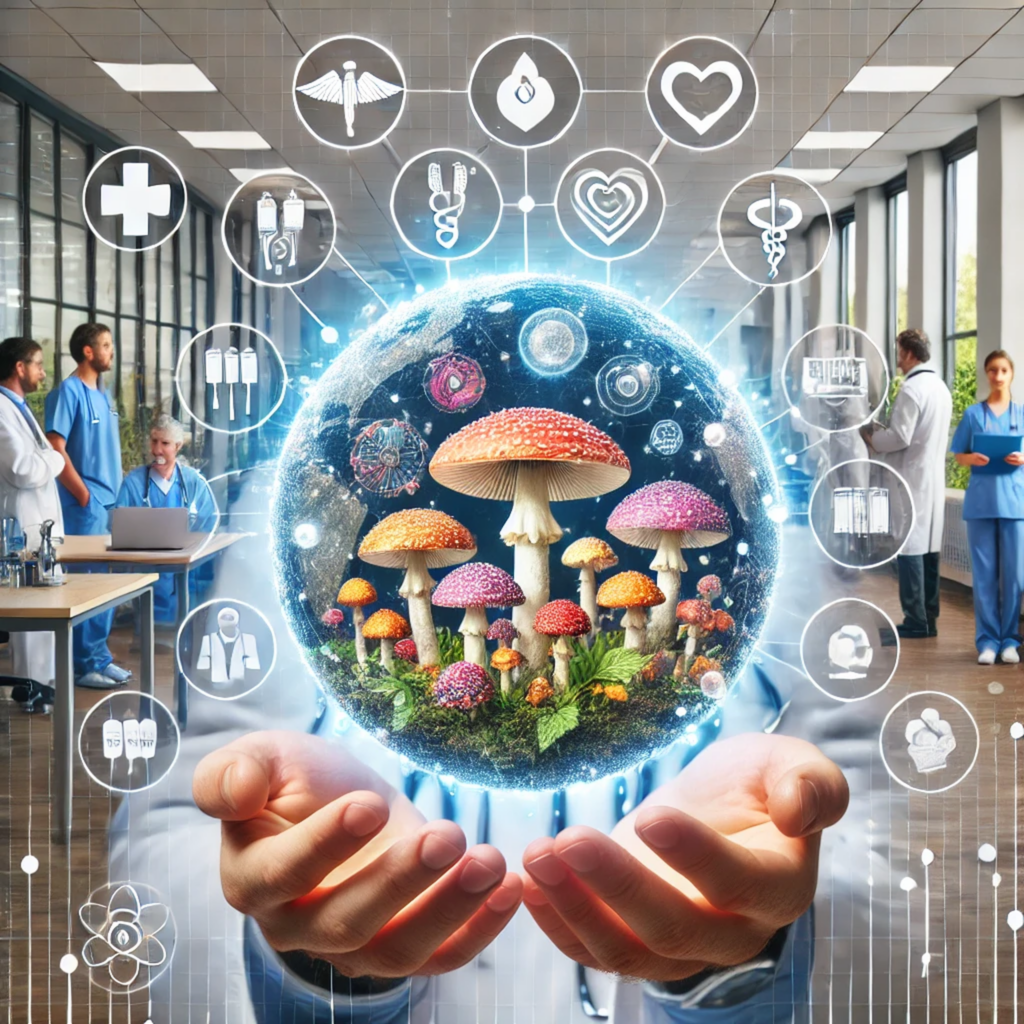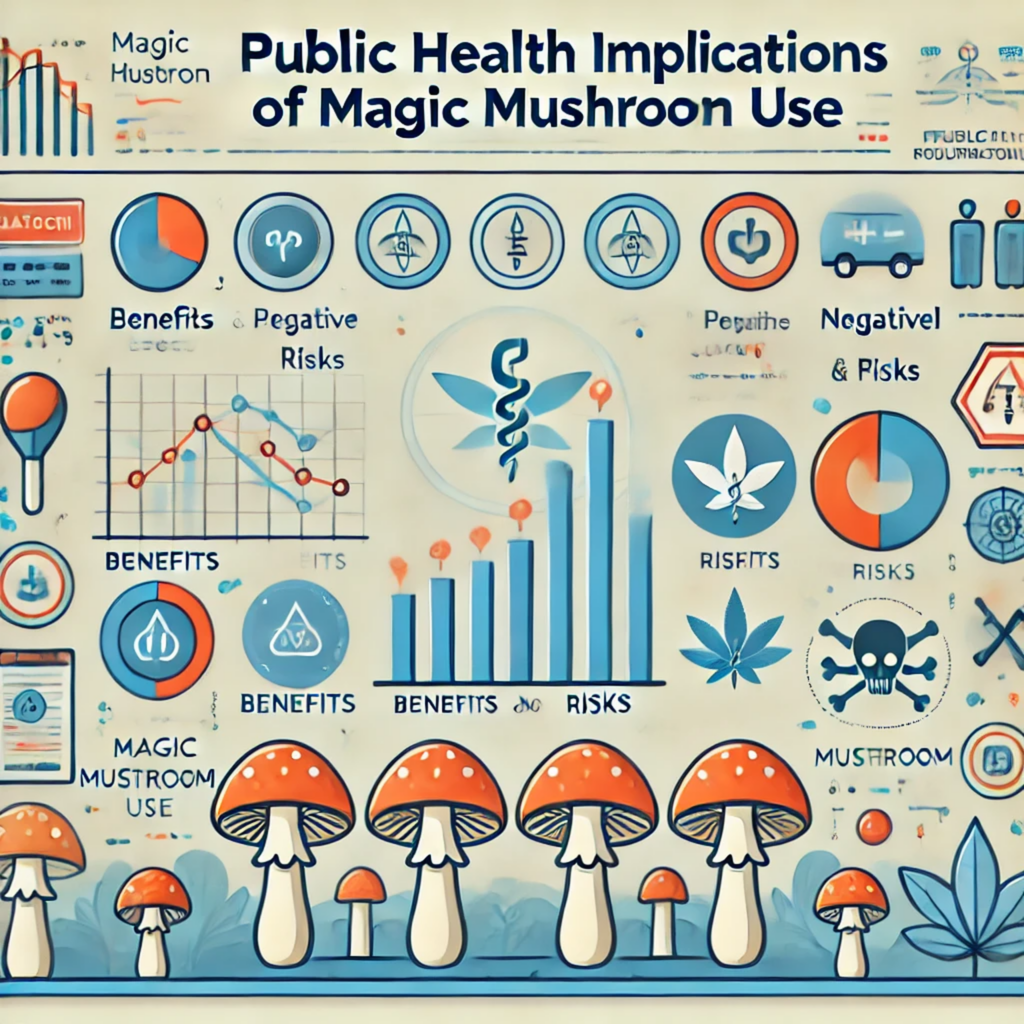Journey to Wellness: Unleashing the Healing Powers of Psilocybin
Published: July 13, 2023
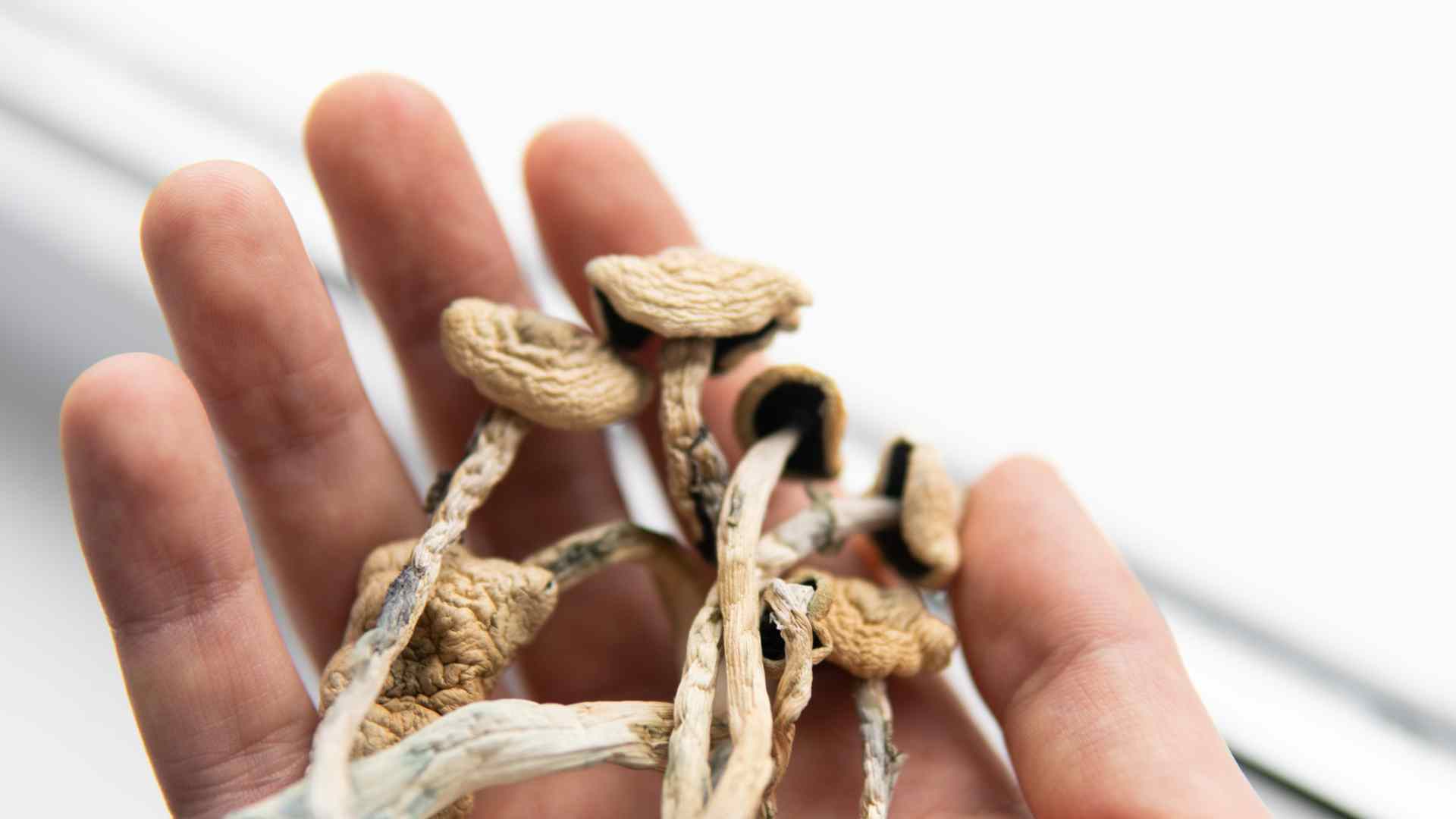
Imagine holding the key to a treasure chest of healing right in the palm of your hand. Sounds too good to be true? Well, guess what—it’s not as far-fetched as it sounds. Welcome to the captivating world of psilocybin, nature’s secret weapon for mental and emotional wellness. It’s not magic—it’s science, although sometimes the results can feel pretty enchanting.
With mental health issues skyrocketing globally, traditional treatments aren’t always cutting it. We’re not saying those should be thrown out the window, but something incredibly potent could complement them, and it’s been right under our noses all along—within tiny, often overlooked mushrooms.
This journey we’re about to embark on isn’t just about finding new treatments—it’s about transformation. From understanding the origins of psilocybin, diving into its effects on the human brain, to exploring its potential in therapy and beyond. It’s a path that’s as fascinating as it is filled with hope.
So, are you ready to go down the rabbit hole? Don’t worry; we’ll be guiding you every step of the way. Let’s get started.
Diving Deeper: Psilocybin Unveiled
Psilocybin. You’ve heard the term, sure, but what exactly is it? Well, psilocybin is a naturally occurring psychedelic compound that’s produced by more than 200 species of mushrooms. These are different from the type of mushrooms you’d toss into your stir-fry, though. Known colloquially as “magic mushrooms,” they’ve been used in religious and spiritual rituals for centuries. As a compound, psilocybin is a prodrug, which means it’s inactive until the body converts it into psilocin. That’s where the “magic” happens.
Now, if you took a stroll in nature, how would you know which mushrooms contain psilocybin? It’s not always easy, and it’s crucial not to go sampling wild mushrooms willy-nilly – some can be extremely harmful or even lethal. Generally, psilocybin-containing mushrooms have a dark, purplish-brown spore print and tend to grow in moist, humid climates. Some common types include Psilocybe cubensis, Psilocybe cyanescens, and Psilocybe semilanceata, each with its distinct appearance and potency.
So, you eat one of these mushrooms, and what happens? Here’s where things get trippy. After the psilocybin is converted to psilocin, it interacts with your brain’s serotonin receptors. These receptors influence a whole range of functions, from mood to perception. The psilocin shakes things up, leading to alterations in sensory perception, thought patterns, and time perception, often accompanied by intense emotional experiences.
Here’s a way to think about it. Imagine your brain is like an old-school telephone switchboard, with operators connecting calls through specific circuits. Psilocybin comes in like a new operator, disconnecting the usual routes and connecting calls in entirely different, unexpected ways. This leads to unusual and potentially insightful experiences, like seeing sounds or hearing colours.
What’s crucial to remember, though, is that psilocybin isn’t a party drug. It’s a potent substance with a long history and potential for deep introspection and healing. That’s something worth understanding and respecting.
If you want to learn more about psilocybin, here are 10 mind-blowing secrets you didn’t know.
Into the Mind: Psilocybin and the Mental Health Revolution
Mental health. It’s a subject that’s been getting a lot more attention lately and for good reason. As per the World Health Organization, nearly one billion people worldwide have a mental disorder, with depression becoming a leading cause of illness and disability. That’s a lot of folks who are suffering, and traditional treatments aren’t always effective. The need for alternatives is urgent.
Now, imagine if a solution might lie, not in a pharmacy, but in nature, in psilocybin. In recent years, scientists have been exploring how this psychedelic compound could be used to treat a variety of mental health conditions. The results? Well, they’re pretty promising.
Let’s take a look at how this works. In therapy settings, psilocybin isn’t just given willy-nilly. It’s administered under the guidance of trained professionals, often as part of a process that includes preparation, the psilocybin experience itself, and follow-up integration sessions. The idea is to create a safe, supportive environment that allows the individual to explore their inner experiences beneficially.
So, you’re probably thinking, “Sounds nice, but does it actually work?” Here’s where the rubber meets the road. There have been several case studies showing the potential benefits of psilocybin therapy.
It’s important to mention that this isn’t about promoting the casual use of psilocybin. It’s about acknowledging its potential in a clinical setting and pushing for further research. Because if this humble mushroom could revolutionize mental health treatment, isn’t that worth exploring?
Unravelling the Knots: Psilocybin’s Role in Emotional Healing
Moving beyond mental health disorders, let’s dive into the realm of emotional healing. We’ve all been through tough times, right? Heartbreak, grief, and traumas, big and small — can leave scars that stick with us for years. Sometimes, those emotional wounds can be more complex to heal than physical ones.
And that’s where psilocybin might offer a helping hand. Recent studies suggest that psilocybin could help people face, process, and eventually overcome emotional traumas. Some people liken the experience to a kind of “psychedelic therapy,” where buried feelings are unearthed and dealt with rather than continually avoided. The result can be a kind of emotional release, a freeing of the knots of past trauma.
But that’s not all. Psilocybin might also play a role in fostering resilience. Resilience — that ability to bounce back from life’s adversities — is crucial for maintaining our emotional health. Some research suggests that psilocybin experiences can help individuals cultivate a greater sense of self-awareness, empathy, and openness, which can, in turn, enhance resilience. It’s like giving your emotional immune system a boost.
Navigating the Legal Maze: The Current Status and Future of Psilocybin Therapy
Now, with all these potential benefits, you might ask, “Why isn’t psilocybin therapy available to everyone?” The answer lies in the complicated world of drug laws and regulations.
Currently, psilocybin is still classified as a Schedule I substance under international law. This means it’s considered to have a high potential for abuse and no recognized medical value. Unfortunately, this classification is a significant roadblock to making psilocybin therapy widely available. Many countries, including the US, UK, and Canada, have similar restrictions.
But the tides may be starting to turn. Despite mounting scientific evidence, there’s a growing push to decriminalize or even legalize psilocybin for therapeutic use. For instance, in the United States, some cities and states have already decriminalized psilocybin, meaning that while it’s not technically legal, law enforcement has made it a low priority.
Then there are advocacy groups working hard to change the legal status of psilocybin. They’re pushing for more research, better public education, and law changes. They are driving efforts to make therapies with substances like psilocybin more accessible.
In short, while the legal landscape for psilocybin therapy can seem discouraging, there’s a lot of momentum toward changing it. As science progresses and public attitudes shift, we may see more accessible, legal psilocybin therapy in the not-too-distant future. And that’s a future worth working towards.
Beyond the Horizon: The Promising Future of Psilocybin Therapy
As we’ve seen, psilocybin has shown remarkable potential for helping people face and overcome some of the most challenging mental health issues. The burning question is, “What does the future hold for psilocybin therapy?”
The realm of mainstream medicine is starting to open its doors to psilocybin. As researchers continue to prove its effectiveness in various clinical trials, more therapists and physicians are considering how to incorporate it into their practice. Imagine a world where psilocybin therapy is as standard as cognitive-behavioural therapy, used to assist people in overcoming trauma, depression, and anxiety. Sounds futuristic, right? But that future might be closer than you think.
But before this future can become a reality, more research is needed. Scientists are conducting studies to understand better how psilocybin works, how to use it most effectively, and how to minimize potential risks. Recent studies have been highly encouraging, suggesting that psilocybin therapy could significantly impact mental health treatment in the coming decades.
Now, you might be thinking, “This is all great, but how can I be part of this?” There are several ways you can contribute to the future of psilocybin therapy. You can educate yourself and others about the potential benefits and risks of psilocybin. You can support organizations that conduct research or advocate for policy changes. If you’re a healthcare professional, consider how you might incorporate the insights from psilocybin research into your work.
In conclusion, the future of psilocybin therapy is bright and full of potential. As we continue to explore and understand this potent compound, we’re likely to see a new era in mental health treatment—one that embraces the healing powers of psilocybin. Together, we can all play a part in making that future a reality.
The Awakening: Harnessing Psilocybin’s Potential for Healing
As we journey back through the psychedelic path we’ve traversed, it’s clear that psilocybin—a once stigmatized and misunderstood compound—holds immense healing potential. We’ve seen its ability to help individuals face their deepest fears, heal from past traumas, and foster resilience. Real-life instances underscore how this potent compound has turned around the lives of many, granting them newfound peace and mental well-being.
When we look to the horizon, the future of psilocybin in healthcare seems promising. With the growing body of research, we see a glimmer of a future where psilocybin therapies become commonplace, a reliable option in our mental health toolkit. With ongoing studies and a gentle shift in societal and legal perspectives, this vision is not merely a fanciful dream—it’s a potential reality that could revolutionize how we perceive and tackle mental health.
But like any promising discovery, it is essential for us—as curious minds, potential users, advocates, or health professionals—to educate ourselves continually. Understanding more about psilocybin, its effects, applications, and the responsible practices surrounding its use is the first step towards harnessing its healing power.
So, here’s to the daring explorers, the open-minded individuals ready to delve into the world of psilocybin. May your journey be filled with curiosity, wisdom, and a profound connection with the healing potential that nature has graciously provided us. Together, let’s explore, understand, and contribute to the fascinating story of psilocybin.
